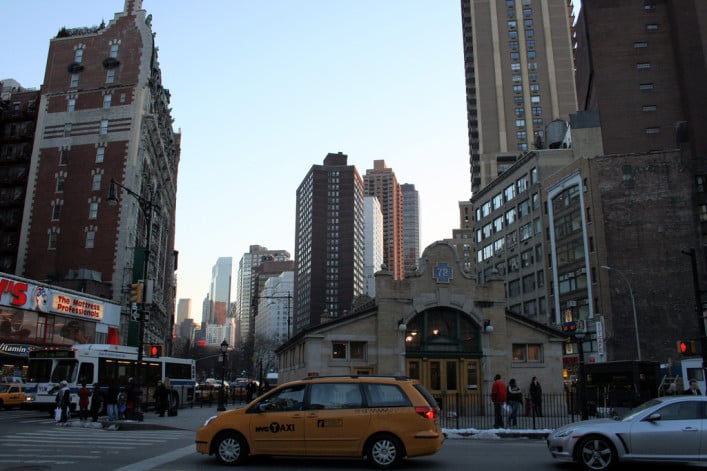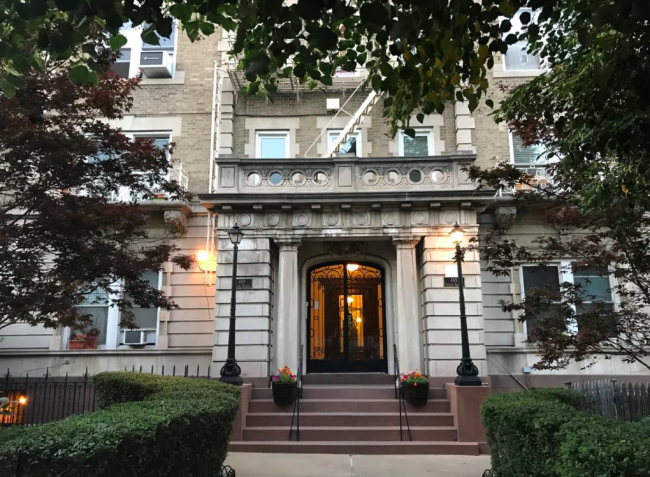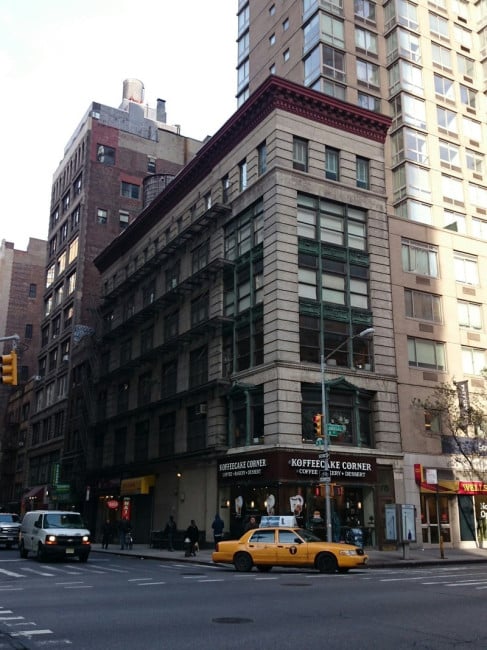My co-op board interview: 'Uncomfortable' paperwork and the questions I should have asked about smoking

Adan's co-op building is close to the 72nd Street subway on the Upper East Side. .Martin./Flickr
A board interview is the final step to approval when buying a co-op unit in New York City. In this series, New Yorkers tell Brick Underground about their experience with the interview process, what worked and what didn’t—and what others can learn. This week, Kathleen Adan, who asked we use a pseudonym, shares her experience buying a co-op on the Upper East Side. For Adan, a retiree from Westchester, the scrutiny of the board came as a shock. Once she moved in, she quickly discovered she was going to have to ask some uncomfortable questions—something she hadn’t been encouraged to do during the process.
What was your biggest challenge during the application process?
I'd heard I'd have to do a package, but I did not really drill down on the detail of what I'd have to provide. They wanted to know how much I had in my IRA. That’s fine, but I also had to give them a list of everything I've invested in. I’m paying someone to advise me on my investments but I had to hand it over to people I didn’t know. I had to get three years of income tax statements. When I was told they didn’t just want the first two or three pages, but everything, I was really taken aback. Then, of course, there’s your work history and letters attesting to who you are.
What were your main concerns about providing this information?
To this day, I don’t know what happened with all my paperwork. If someone got their hands on that package, they could steal my identity. There were no reassurances given and I never really asked what happened to it. I probably should have.
How did the actual interview go?
I went in feeling very uncomfortable that whoever I was meeting was sitting there knowing everything about me and I didn’t know anything about them. I waited a few months before the meeting could be scheduled. In the end, it went better than I expected. I was supposed to meet three people; the president of the board and two others. As it turned out, the president of the board was busy that night, he went to a baseball game so he wasn’t there. But two other board members, two women, were there and it turned out that one of them was a friend of a friend so the whole meeting was very relaxed.
I had sold a private home first, and had put my stuff in storage and was staying with friends. I didn't feel the board members were interrogating me at all. They were getting to know me, chatting about the building. We went off on a tangent because we found we had a connection through a volunteer program I work with.
Did you feel you could ask questions of the board?
The interview itself was not a problem. I left the meeting knowing I was not going to be rejected, but the advice from the broker was not to ask too many questions and I heard that from others too. I was told that if you ask a question that is off-putting to them, that could trigger a reason why they might not want you in the building.
What are some of the questions you might have asked if you’d felt able?
As it turned out, my neighbor is a heavy chain smoker and I quickly realized it was getting into my apartment. It wasn’t just odor. It was almost visible smoke. I was involved in facilities management for major corporations before I retired, so I determined the smoke was coming through the wall near where the riser pipe was and I asked the super to break open the wall and take a look. Sure enough, there was a gap around the pipe that had never been sealed up. So what the building agreed to do, finally after many months, was to seal it up and they also went into the neighbor’s apartment and sealed that up. It has been better.
Perhaps if I had been more attuned to the smoking thing and had asked questions about the policy in the interview, it might have helped, but I might not have got the apartment. I may try to organize something with the other tenants to see if they want to change the bylaws.
What originally attracted you to the co-op?
I knew I wanted to be on the Upper East Side where I knew people and was familiar with the neighborhood. I didn’t want to pay high maintenance fees for amenities I wouldn’t use. I’m not a gym rat. I’ve no use for a playroom. I was looking for something a little simpler, that was part of it. I liked the apartment layout, the closet storage, and that fact that I could move in without renovating. The building has a doorman and I also thought a garage would be good, although that didn’t work out. The building has a waitlist for the garage and it’s more expensive than the one that’s half a block away.
What are some of the takeaways from the whole process?
I now realize I was looking at this apartment in the heat of the summer, visiting it on some stifling hot days and the AC was working full force, and all of the windows were open. I thought the broker was airing it out because it was stuffy, but it was probably the cigarette smoke that was being aired out.
As for the scrutiny of the process—I never want to go through that again. It looks like the smoking is under control, otherwise, I was looking at putting the apartment back on the market. I’d have to go with a condo. A small studio condo seems to be the equivalent of an 800-square-foot, one-bedroom co-op. I think I would ask a lot more questions in the beginning before I made a decision.
You Might Also Like




























